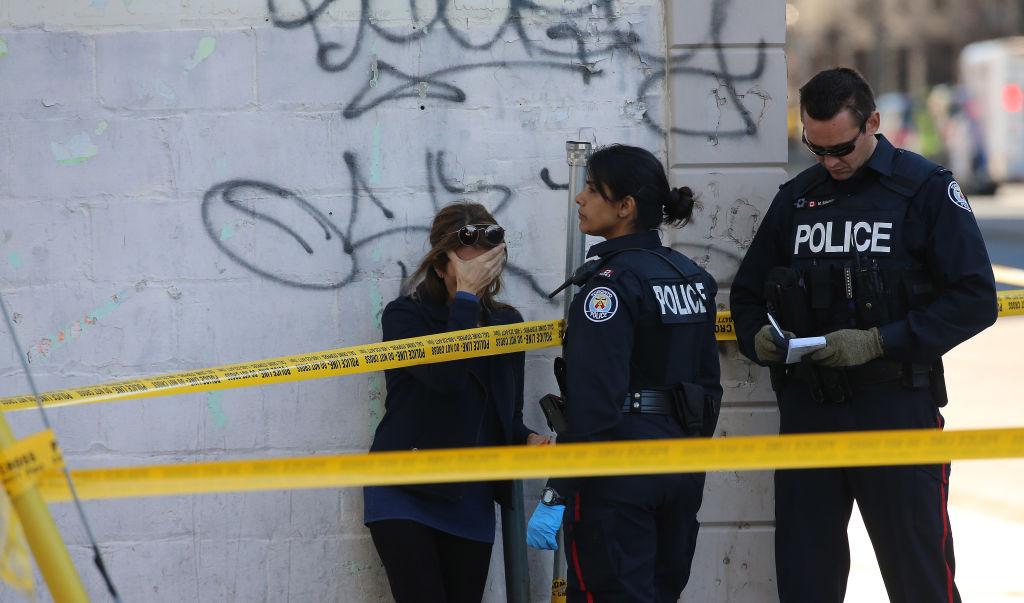
On 24 February, a 17-year-old boy stabbed a young woman to death at the Crown Spa massage parlour in North York, Canada, and left two other people with serious injuries. The alleged perpetrator (who cannot be named because he is a minor) was charged with first-degree murder and attempted murder. While the details of his motivation remain murky, he reportedly told police officers that his goal was to kill as many women as possible.
On 19 May, the Toronto Police Service and the Royal Canadian Mounted Police jointly announced that they would also be laying terrorism charges against the suspect, saying that investigators had found that he ‘was inspired by the Ideologically Motivated Violent Extremist (IMVE) movement commonly known as INCEL (involuntary celibate). As a result, federal and provincial Attorney Generals’ [sic] have consented to commence terrorism proceedings.’
This is believed to be the first time a terrorism charge has ever been laid in connection to incel ideology, despite the multitude of previous violent and mass-casualty attacks linked to the movement.
Earlier this year I wrote about the need to take violent misogyny seriously as a form of violent extremism and the formation of online communities united by their antagonism to women. Some might object to considering misogynist ideologies as a form of extremism, or misogynistic attacks as a form of terrorism, on the basis that terrorism is political violence and that misogyny is somehow not political. However, any ideology which asserts that approximately half of the population are inferior beings and advocates their subjugation, with violence if necessary, is inherently political.
Incels are only one manifestation of this phenomenon, which exists on a spectrum that ranges from the casual but constant denigration of women on forums like 4chan or 8kun to the fixation with control over women and women’s bodies shown by Islamic extremists and white nationalists alike.
Promotion of misogynist violence is not limited to small audiences or fringe online spaces. Just this week, popular Indian TikTok content creator Faizal Siddiqui was finally banned from the platform after one of his videos glorifying acid attacks against women went viral. Many Indian commentators have noted that Siddiqui’s video is only the tip of the iceberg.
‘One of the most common kinds of content amid TikTokers, young and old, in India, revolves around beating or harassing women and making light of serious offences such as domestic abuse and gender violence’, writes Rakhi Bose.
The decision to charge the alleged perpetrator of the North York stabbing attack with terror offences stands in contrast to the charges laid against Alek Minassian, a self-professed incel who deliberately drove a van into a crowd in Toronto in 2018. Minassian killed eight women and two men and injured 16 others in what he told police was ‘retribution for years of sexual rejection and ridicule by women’. Minassian is charged with 10 counts of first-degree murder and 16 counts of attempted murder. His trial was due to begin in April, but has been delayed by the Covid-19 pandemic.
The terrorism charges for the North York attack are the latest sign that law enforcement and the broader national security community are slowly beginning to take violence linked to misogynist movements more seriously as a form of extremism and not just criminal violence.
In June 2019, for example, Joint Base Andrews near Washington DC issued a warning to troops about the incel movement after it emerged that Brian Isaack Clyde, an army veteran who launched a failed terrorist attack on a Dallas court, was an active member of the incel community.
‘The content of this briefing was based upon law enforcement as well as public sources and was used to inform both military commanders and law enforcement personnel about a very real threat to military members and civilians’, a base spokesman told Military Times.
The US military also reportedly warned about the potential for incel-linked shootings at screenings of the controversial Joker movie in September. The incel movement was listed as an ‘emerging domestic terrorism threat’ by the Texas Department of Public Safety in January.
In Australia, recent research from the University of Western Australia found that attacks connected to the incel movement had killed at least 50 people and injured at least 58 more since 2014, numbers comparable to the deaths associated with Islamic extremism in the same period. Despite this similarity, far less attention has been paid to prevention and counter-extremism efforts in connection with violent misogyny in comparison with Islamic extremism.
‘What Incel has done is make misogyny dangerous to everyone, not just women. The very broad and public nature of this threat means that the government must now deal with misogynistic attitudes as an issue of national security’, report author Dr Katie Attwell said. The researchers are calling on the Australian government to designate the incel movement as a security threat and establish prevention and counter-radicalisation programs to address the rise of misogyny in the community.
The Covid-19 pandemic and accompanying economic crisis are likely to make the need for such prevention efforts all the more pressing by heightening risk factors such as social isolation, stress and unemployment, especially for young people.
The decision by Canadian authorities to designate the North York attack an act of terrorism is a recognition of the very real threat to national security and public safety which extreme misogyny poses. Governments and law enforcement agencies in other nations, including Australia, should be watching closely.